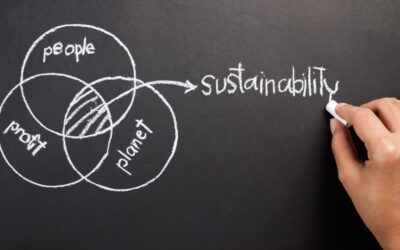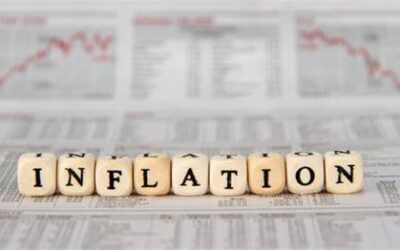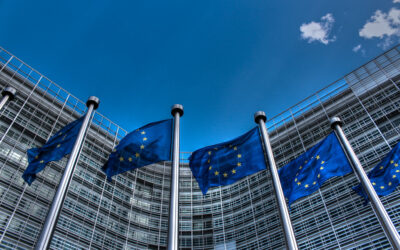
Foreign investors looking to establish operations in Europe often consider both France and the Netherlands due to their strategic locations, business-friendly environments, and strong economies. While both countries offer competitive advantages, they differ in certain key areas, including tax incentives, infrastructure, innovation ecosystems, and sector-specific opportunities. This article provides a comparative analysis of foreign investment prospects in France and the Netherlands.
Business Climate and Market Accessibility
The Netherlands: The Netherlands boasts one of the most open and competitive economies in the world, making it an attractive destination for foreign investors. It serves as a major gateway to Europe, with 95% of Europe’s key consumer markets accessible within 24 hours from Amsterdam or Rotterdam. The country is home to a highly skilled, multilingual workforce and ranks among the best in technology and innovation.
Additionally, the Netherlands offers a stable business climate with a well-developed digital infrastructure, making it a hub for international businesses looking to expand in Europe. Many multinational corporations have chosen the Netherlands as their European headquarters due to its superior logistics, innovation-driven policies, and investor-friendly regulatory framework.
France: France is the world’s seventh-largest economy and a key player in the European market. It serves as a business hub for both European and African markets due to its strategic location. The country has implemented numerous structural reforms aimed at modernizing its administrative and regulatory framework, making business operations more efficient.
France has also established itself as one of the fastest countries in the world for business creation, with new businesses taking an average of just four days to set up. Additionally, France is known for its large consumer market, robust industrial base, and strong state support for key industries such as energy, healthcare, and technology.
Innovation and R&D Incentives
The Netherlands: Innovation is deeply embedded in the Dutch economy. The country consistently ranks high in global innovation indices, with strong support for research and development (R&D) activities. The Netherlands is home to multiple innovation hubs and clusters in key industries such as agrifood, life sciences, high-tech systems, and clean energy.
The Dutch government provides several tax incentives to stimulate R&D investment, including the R&D tax credit (WBSO) and the Innovation Box, which reduces the corporate tax rate on income derived from innovative activities. The Netherlands also fosters collaboration between universities and industries, ensuring a strong knowledge-based economy.
France: France is a leader in R&D investment, ranking third in Europe and seventh worldwide in terms of R&D spending. The country has one of the most generous R&D tax support schemes in the OECD, with a research tax credit of 30% on R&D expenditure up to €100 million and 5% above that threshold.
Additionally, France’s academic institutions are among the best in the world, producing a high volume of research talent and patents. The government’s commitment to innovation is evident through initiatives such as the France 2030 investment plan, which prioritizes key areas like artificial intelligence, decarbonization, and digital transformation.
Tax and Investment Incentives
The Netherlands: The Dutch corporate tax system is designed to attract foreign investment. The country offers a competitive corporate income tax rate—19% on the first €200,000 of taxable profits and 25.8% for profits exceeding this amount. The Netherlands also provides tax certainty in advance for multinational companies through its wide tax treaty network and proactive tax ruling policies.
Furthermore, the country promotes R&D activities through specific tax incentives and offers attractive fiscal conditions for international headquarters, making it a preferred destination for companies seeking financial and legal stability.
France: France has significantly improved its corporate tax structure in recent years to attract foreign investment. The country provides a favourable fiscal climate through incentives such as the research tax credit and investment subsidies for high-tech industries.
Additionally, the French government has invested heavily in industrial modernization, allocating €27 billion to decarbonization initiatives and various infrastructure projects under the France 2030 plan. Corporate tax rates have been progressively reduced to enhance France’s competitiveness in attracting multinational firms.
Infrastructure and Logistics
The Netherlands: The Netherlands boasts a world-class infrastructure network that supports efficient logistics and distribution. The country is home to the largest seaport in Europe (Port of Rotterdam) and one of the busiest airports (Amsterdam Airport Schiphol). With an extensive network of roads, railways, and high-standard logistics service providers, the Netherlands serves as a key European distribution hub.
France: France also offers top-tier infrastructure, with the second-largest railway network in Europe and six major seaports. Paris-Charles de Gaulle Airport is the European Union’s leading airport for passenger traffic and ranks second in freight transport. Additionally, France has heavily invested in digital infrastructure, with over 51% of the country covered by high-speed internet, making it an attractive destination for tech-driven businesses.
Sector-Specific Opportunities
The Netherlands:
- High-tech and innovation: Strong focus on digital transformation, fintech, and semiconductor industries
- Logistics and distribution: Superior connectivity for European and global supply chains
- Agrifood and life sciences: Home to leading agribusinesses and biotechnology firms
- Sustainable energy: A leader in renewable energy research and green technology
France:
- Artificial intelligence and cloud computing: Major investments from Microsoft, Amazon, and Google in AI and cloud infrastructure
- Green mobility and decarbonization: Heavy investment in electric vehicle production and hydrogen-based industries
- Healthcare and pharmaceuticals: France is home to major pharmaceutical giants and biotech startups
- Financial services: Paris continues to grow as a European financial hub post-Brexit
Conclusion: Which Country is the Better Choice for Investors?
Both France and the Netherlands offer highly attractive investment opportunities, but the choice depends on the nature of the business and strategic priorities:
- For businesses prioritizing innovation, logistics, and digital transformation, the Netherlands provides a strong ecosystem with world-class infrastructure and business-friendly regulations;
- For investors seeking access to a large consumer market, strong state support for R&D, and a dynamic industrial sector, France offers a compelling value proposition, particularly in AI, healthcare, and green energy.
Lastly, foreign investors should assess their industry focus, target market, and operational needs when deciding between these two economic powerhouses. With their strategic locations and strong economic policies, both France and the Netherlands remain premier destinations for international businesses looking to expand in Europe.
References
Business France. (2024). Why choose France. Retrieved from Business France: https://www.businessfrance.fr/en/our-expertise/invest-in-france/why-choose-france
PwC Netherlands. (2025). Why invest in the Netherlands. Retrieved from PwC: https://www.pwc.nl/en/insights-and-publications/services-and-industries/tax/doing-business-in-the-netherlands/why-invest-in-the-Netherlands.html
SNECI Group. (2024). Industry and market trends – Record foreign investment at Choose France 2024. Château de Versailles: SNECI Group.
Photo:
https://th.bing.com/th/id/OIP.At1eqSNoFc5c-sb7mzRXFQHaEK?rs=1&pid=ImgDetMain



